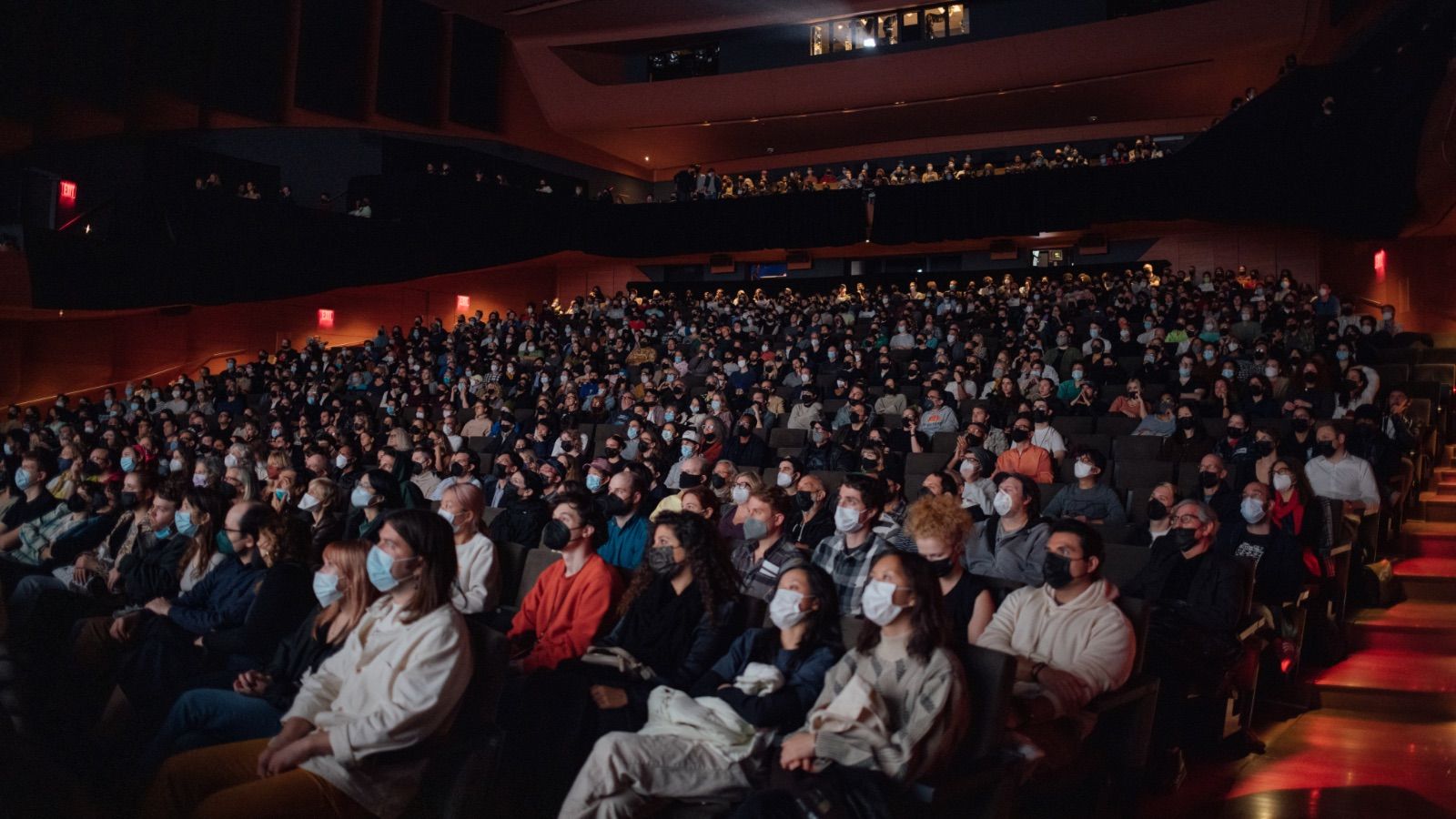
College student film festivals have become an integral part of the academic and creative landscape, offering budding filmmakers a platform to showcase their talent, learn from peers, and gain exposure to industry professionals. These events have evolved significantly over the years, adapting to changing technologies, cultural shifts, and global events. From humble beginnings on campus quads to international online showcases, student film festivals have consistently pushed the boundaries of creativity and innovation. As any seasoned filmmaker knows, the journey from script to screen is arduous, often requiring multiple revisions and refinements. Many students find that utilizing an essay editing service, like EssayHub.com, can be invaluable in polishing their screenplays and festival submissions. The history of these festivals is as diverse and dynamic as the films they feature, with events like Twister Alley Film Festival providing unique opportunities for student filmmakers to explore unconventional narratives and experimental techniques. This article will explore the evolution of college student film festivals from 2020 to 2024, highlighting key trends, challenges, and triumphs that have shaped this vibrant community.

College Student Film Festivals 2020
The year 2020 marked a significant turning point for college student film festivals worldwide. As the COVID-19 pandemic swept across the globe, traditional in-person events were suddenly rendered impossible. Festival organizers faced an unprecedented challenge: how to maintain the spirit of community and celebration of cinema in a socially distanced world.
Many festivals quickly pivoted to virtual formats, leveraging video conferencing platforms and streaming services to showcase student films. The Ivy Film Festival, one of the largest student-run film festivals in the world, successfully transitioned to an entirely online event, featuring film screenings, panel discussions, and workshops with industry professionals.
The shift to virtual platforms democratized access to these festivals, allowing students from diverse backgrounds and geographic locations to participate without the barriers of travel costs or visa restrictions. However, this transition also presented new technical challenges, such as ensuring high-quality streaming and maintaining audience engagement in a digital environment.
Despite these obstacles, 2020 saw an outpouring of creativity from student filmmakers. Many used the constraints of lockdowns and social distancing to craft innovative narratives and explore new filmmaking techniques. Documentaries and experimental shorts that reflected on the global crisis became particularly prevalent, with festivals like the National Student Film Festival dedicating special categories to COVID-19-related content.
College Student Film Festivals 2021
As the world continued to grapple with the pandemic in 2021, college student film festivals built upon the lessons learned from the previous year’s virtual experiments. Hybrid models began to emerge, combining online screenings with limited in-person events where possible.
The Sundance Film Festival’s Ignite program, which focuses on young filmmakers, expanded its digital offerings while maintaining its commitment to fostering new talent. This approach allowed for greater inclusion of international student participants who might not have been able to attend in person even in non-pandemic years.
2021 also saw an increased focus on diversity and representation in student films and festival programming. The Campus Movie Fest, one of the largest student film festivals in the United States, introduced new categories and awards specifically designed to highlight underrepresented voices in filmmaking.
Technology continued to play a crucial role, with some festivals experimenting with virtual reality screenings and interactive online experiences. The New York University Tisch School of the Arts’ Fusion Film Festival, for example, created a virtual campus environment where attendees could “walk” through exhibition spaces and attend screenings in simulated theaters.
Despite the ongoing challenges, 2021 demonstrated the resilience and adaptability of student filmmakers and festival organizers. The films produced during this period often reflected themes of isolation, connection, and the search for meaning in uncertain times, resonating deeply with audiences around the world.

College Student Film Festivals 2022
The year 2022 marked a cautious return to in-person events for many college student film festivals, albeit with continued digital components. This hybrid approach allowed festivals to retain the global reach they had achieved during the fully virtual years while reintroducing the irreplaceable energy of live audiences and face-to-face networking.
The American University in Cairo International Student Film Festival exemplified this trend, hosting on-campus screenings and workshops while simultaneously streaming content to international participants. This dual approach not only increased accessibility but also fostered unique collaborations between students from different countries and cultural backgrounds.
2022 also saw a rise in thematic festivals addressing pressing global issues. Climate change, social justice, and mental health emerged as prominent themes, with events like the Yale Student Film Festival dedicating entire programs to environmental documentaries and activist short films.
Technological innovations continued to shape the festival landscape. Augmented reality (AR) elements were integrated into some festivals, allowing attendees to access additional content and behind-the-scenes information by scanning posters or program materials with their smartphones.
The influence of social media platforms on film distribution and audience engagement became increasingly apparent. Many festivals incorporated TikTok challenges and Instagram reels competitions, encouraging students to create micro-content that could serve as teasers for their longer works or stand alone as ultra-short films.
College Student Film Festivals 2023
In 2023, college student film festivals fully embraced their role as launchpads for emerging talent in an increasingly interconnected global film industry. The line between student and professional productions began to blur, with many festival winners going on to secure distribution deals or funding for feature-length projects.
The South by Southwest (SXSW) Film Festival expanded its student film category, recognizing the high caliber of work being produced on campuses around the world. This increased attention from major festivals provided student filmmakers with unprecedented exposure to industry professionals and potential career opportunities.
Virtual production techniques, popularized by shows like “The Mandalorian,” started to appear in student films. Some universities invested in LED wall technology, allowing students to create complex visual effects in-camera. Festivals like the University of Southern California’s First Look Film Festival showcased groundbreaking student works that rivaled Hollywood productions in their visual sophistication.
Artificial intelligence also made its mark on the festival circuit, with some events featuring AI-assisted films or hosting debates on the ethical implications of AI in filmmaking. The Massachusetts Institute of Technology’s MIT Technology Review Film Festival led the way in exploring the intersection of technology and storytelling.
Inclusivity remained a key focus, with many festivals implementing blind submission processes to reduce bias in selection. The emphasis on diverse voices led to a rich tapestry of stories from underrepresented communities, bringing fresh perspectives to the screen.

College Student Film Festivals 2024
As we enter 2024, college student film festivals continue to evolve, reflecting both technological advancements and shifting cultural priorities. The integration of artificial intelligence has expanded, with some festivals now including categories for AI-generated or AI-collaborative films, sparking debates about authorship and creativity in the digital age.
Virtual and augmented reality films have gained prominence, with dedicated VR theaters becoming a standard feature at many festivals. The Tribeca Film Festival’s student VR competition has become one of the most anticipated events in the immersive storytelling space, attracting entries from around the globe.
Sustainability has become a major focus, with festivals implementing green initiatives and celebrating films that address environmental issues. The University of California, Los Angeles (UCLA) launched its “Green Screen” festival, exclusively featuring student films focused on climate change and sustainability solutions.
Cross-disciplinary collaboration has flourished, with film students partnering with peers from computer science, environmental studies, and other fields to create innovative and impactful works. This trend is reflected in new festival categories that reward interdisciplinary approaches to filmmaking.
The global nature of these festivals has been further enhanced by real-time translation technology, allowing for truly international live discussions and Q&A sessions without language barriers. This has facilitated deeper cultural exchanges and collaborations among student filmmakers from diverse backgrounds.
As we look to the future, college student film festivals stand at the forefront of cinema’s evolution, nurturing the next generation of storytellers and innovators who will shape the future of the medium.
Final Thoughts
The history of college student film festivals from 2020 to 2024 reflects a period of unprecedented change and adaptation in the world of cinema. These events have not only survived global challenges but have thrived, continuously reinventing themselves to meet the needs of young filmmakers and audiences alike. The resilience and creativity demonstrated by student filmmakers during this time serve as an inspiration to the entire film industry.
As we move forward, it’s clear that college student film festivals will continue to play a crucial role in discovering and nurturing new talent. They provide a vital platform for experimentation, risk-taking, and the exploration of diverse perspectives that are essential for the growth and vitality of cinema as an art form.
For students aspiring to make their mark in the film world, these festivals offer invaluable opportunities for learning, networking, and gaining exposure. It’s worth noting that the journey of a filmmaker often parallels the themes found in many motivational movies on Netflix for students, showcasing perseverance, creativity, and the power of pursuing one’s passions against all odds.
As technology advances and global connections deepen, we can expect college student film festivals to remain at the cutting edge of storytelling, continually pushing boundaries and redefining what’s possible in the world of cinema.
Additional Resources:
- Film Festival Strategy: A Practical Guide for Emerging Filmmakers
- The Film Festival Circuit: A Global Phenomenon
- DIY Film Festivals: How to Create, Market, and Run Your Own Event
- Virtual and Hybrid Events: The Future of Film Festivals
- Diversity in Film Festivals: Strategies for Inclusive Programming
